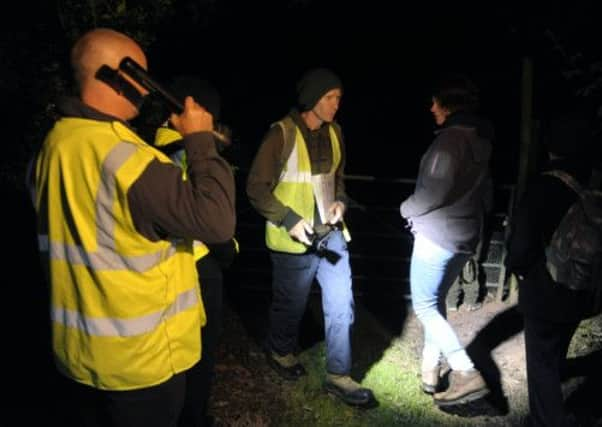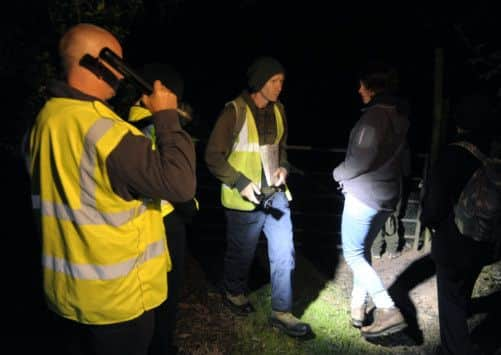Anger as badgers shot to cut spread of cattle TB


National Farmers’ Union president Peter Kendall said the first pilot badger control operations had begun, in a move he described as “very important” for beef and dairy farmers.
No information was given on where shooting was underway, but licences have been given for two pilot culls in west Gloucestershire and west Somerset, with around 5,000 badgers set to be killed in a six-week period across the two areas.
Advertisement
Hide AdAdvertisement
Hide AdIf judged to be effective and humane, culling could be rolled out across TB “hotspot” areas.


Farmers and the Government insist culling of badgers, which can spread TB to cattle, is needed to stop spiralling rates of the disease in herds.
But opponents say culling the protected animal will have only a small effect on infection rates in cattle and will lead to badgers suffering. They want the emphasis to be on vaccines and tighter on-farm and cattle movement measures.
Demonstrators turned out in large numbers at the two pilot sites on Monday and animal welfare campaigners reacted angrily to news the shooting of badgers had begun.
Advertisement
Hide AdAdvertisement
Hide AdMr Kendall said farmers understood the move was divisive and controversial but called for any protestors to act peacefully.
“We understand passions run high, but we’d ask them to remember not just the 5,000 badgers we’re talking about culling in these two pilot areas, but the 38,000 cattle slaughtered, and the emotional damage this disease does to farmers and their families who see not just a lifetime’s work being destroyed but often many generations’ work being destroyed.”
He said farmers were prepared to use whatever resources were available, and saw the development of a vaccine for TB as a complementary measure in the longer term, but it is not available today.
Environment Secretary Owen Paterson said bovine TB was spreading across the country and the UK would not get on top of the disease until infection in badgers as well as cattle is tackled.
Advertisement
Hide AdAdvertisement
Hide AdHe pointed to Australia, New Zealand and Ireland where TB has been successfully addressed with culling as part of the measures used.
Mr Paterson said the Government was aiming to eradicate TB from England in 25 years, with culling playing an important part in the strategy to tackle the disease. Culling could be rolled out more widely next year if the pilots are a success.
“If we had a workable vaccine, we would use it,” he added. “A badger vaccine would have no effect on the high proportion of sick badgers in TB hotspots who would continue to spread the disease.
“We are working on new badger and cattle vaccines but they are years away from being ready and we cannot afford to wait while TB gets worse.”
Advertisement
Hide AdAdvertisement
Hide AdBut animal welfare charity the RSPCA labelled the cull as “misguided” and RSPCA chief executive Gavin Grant added: “The most tragic thing is that this suffering is so needless.
“Science has shown that this cull is not the answer to bovine TB in cattle. In fact, it could make things a lot worse. Vaccination and better bio-security are the only sustainable and true ways forward.”
Labour claimed the coalition had cut spending and research on vaccines for badgers and cattle, and said the official assessment of the pilot culls had revealed it would cost £4m to police.
Shadow Environment Secretary Mary Creagh, MP for Wakefield, said: “We need a science-led policy to manage cattle movements better and a vaccine to tackle TB in cattle.
Advertisement
Hide AdAdvertisement
Hide Ad“Ministers should listen to the scientists and drop this cull which is bad for farmers, bad for taxpayers and bad for wildlife.”
Professor Sir John Krebs, who conducted a major review into the issue in the 1990s, said: “Long-term intensive culling will have a modest effect in reducing TB in cattle, with great uncertainty about the precise magnitude of the effect, but the central estimate is a 16 per cent reduction.”